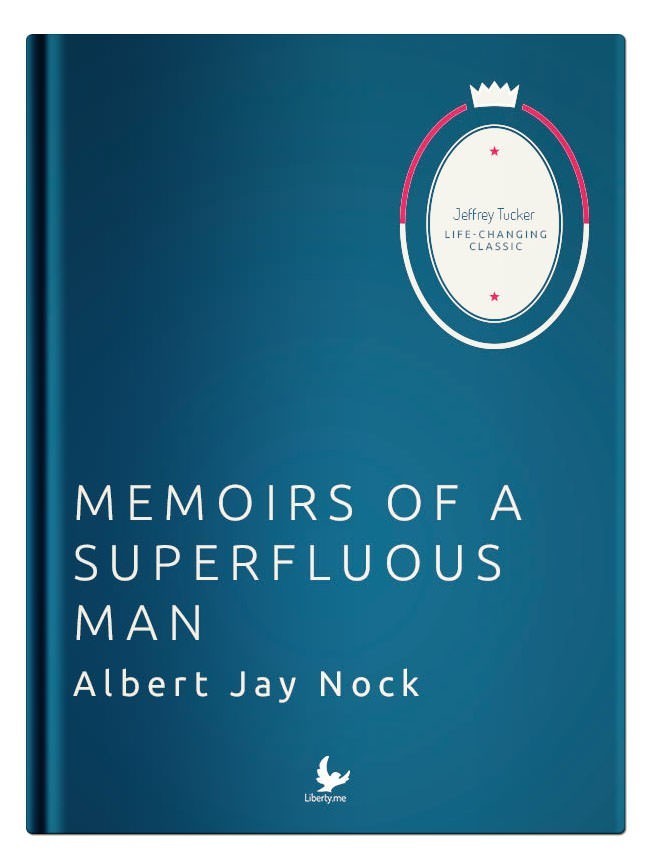
Memoirs of a Superfluous Man
For an earlier generation of American dissidents from the prevailing ideology of left-liberalism, a rite of passage was reading Albert Jay Nock’s Memoirs of a Superfluous Man, which appeared in 1943. William F. Buckley was hardly alone in seeing it as a seminal text crucial to his personal formation.
Here it is in one package, an illustration of the level of learning that had been lost with mass education, a picture of the way a true political dissident from our collectivist period thinks about the modern world, and a comprehensive argument for the very meaning of freedom and civility — all from a man who helped shape the Right’s intellectual response to the triumph of FDR’s welfare-warfare state.
It was destined to be a classic, read by many generations to come. But then the official doctrine changed. Instead of seeing war as part of the problem — as a species of socialism — National Review led the American Right down a different path. Nock’s book was quickly buried with the rise of the Cold War state, which required that conservatives reject anything like radical individualism — even of Nock’s aristocratic sort — and instead embrace the Wilson-FDR values of nationalism and militarism.
Instead of Nock’s Memoirs, young conservatives were encouraged to read personal accounts of communists who converted to backing the Cold War (e.g., Whittaker Chambers), as if warming up to the glories of nukes represents some sort of courageous intellectual step. To the extent that Nock (1870–1947) is known at all today, it is by libertarians for his classic essay Our Enemy, The State (1935), and his wonderful little biography, Mr. Jefferson (1926). Both are great works. He was also the founder of the Freeman in its first incarnation (1920–1924), which held to the highest literary standards and provoked unending controversy with its sheer radicalism.
However, it is with the Memoirs, this wonderful little treatise — part autobiography, part ideological instructional — that we are given the full Nockian worldview, not just his politics but his culture, his life, and his understanding of man and his place in the universe. The book makes a very bracing read today, if only because it proves how little today’s “conservative movement” has to do with its mid-century ancestor in the Old Right. It is also instructive for libertarians to discover that there is more to anarchism than childish rantings against the police power.
The phrase “man of letters” is thrown around casually these days, but A.J. Nock was the real thing. Born in Scranton, Pennsylvania, he was homeschooled from the earliest age in Greek and Latin, unbelievably well read in every field, a natural aristocrat in the best sense of that term.
He combined an old-world cultural sense (he despised popular culture) and a political anarchism that saw the state as the enemy of everything that is civilized, beautiful, and true. And he applied this principle consistently in opposition to welfare, government-managed economies, consolidation, and, above all else, war.

